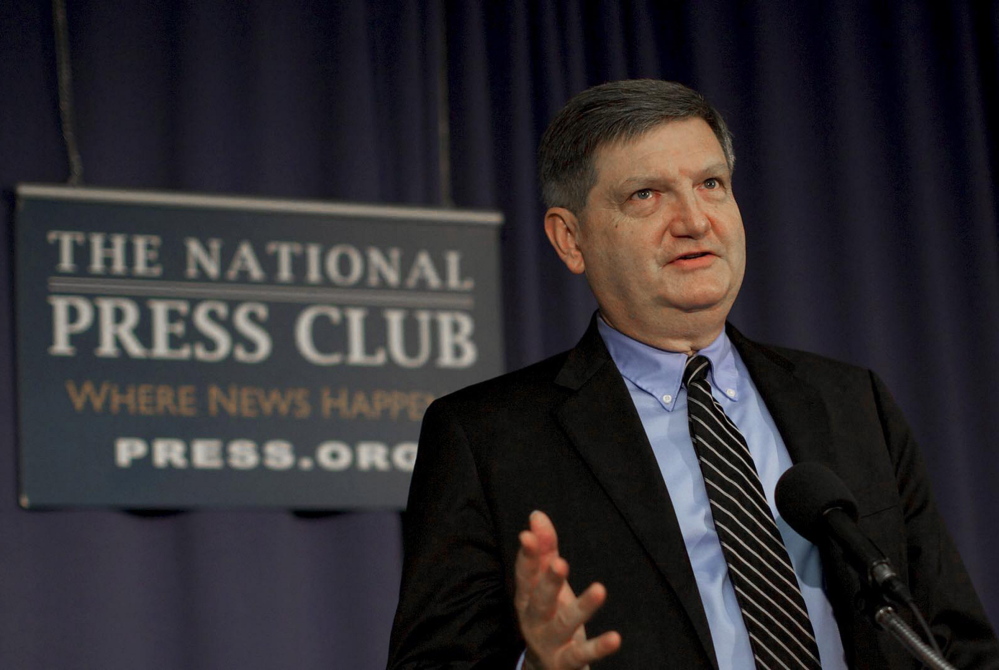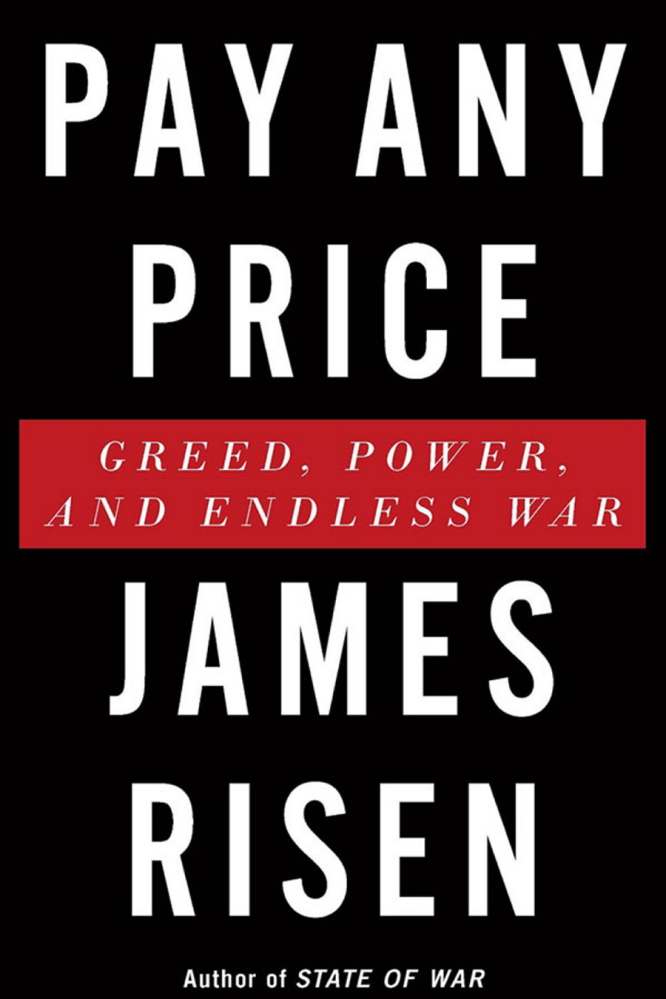James Risen is a bona fide constitutional hero, apart from being an author who has written a very readable book on a fascinating subject. The U.S. government pursued him with legal charges, under both the George W. Bush and Barack Obama administrations, for more than seven years, to try to force him to testify in an espionage trial against a former CIA employee as the journalist to whom the accused had allegedly leaked a story that was embarrassing to the CIA.
Risen made it clear that he was quite prepared to go to jail before he would reveal his sources for the story. Given the importance of the information he reported to the American public, he should be considered a hero – someone who is ready to go to prison to be able to provide information that enables them to know what their government is doing in their name, with their taxpayer money.
Needless to say, Risen’s position in this case also made him a hero to American journalists and their colleagues around the world. He was a champion of freedom of the press, who also made it possible for American journalists to continue to offer their sources a credible promise of confidentiality when they provided a journalist information the public ought to have.
There was also some pleasure for observers in seeing a 59-year-old journalist sticking to his guns, ready to “pay any price” in the face of a bullying, threatening U.S. government across a period of years.
Risen’s new book is about the “greed, power, and endless war” part of the title and it contains stomach-sinking revelations about what the government, contractors and companies have been up to as they have waged “endless war” in Afghanistan, Iraq, Somalia, Yemen and elsewhere.
Risen makes it clear that it is the culture of fear, inculcated by succeeding U.S. governments, aided by the media, that has made it possible for tons of money to be extracted from the American taxpayer since the New York and Washington attacks. Put succinctly, “fear sells,” he says. The players in this game have succeeded in monetizing America’s obsession with terrorism and making themselves rich in the process.
The U.S. intelligence budget has soared to $70 billion a year. Some $20 billion was sent to Iraq, $14 billion of it in cash, of which $11.7 billion was never accounted for by the Coalition Provisional Authority headed by former U.S. Ambassador L. Paul “Jerry” Bremer.
Contractors and companies tied to members of Congress, whom Risen cites by name, made billions of dollars from various programs. Another profitable area was the manufacture of Predator and Reaper drones, some of which Israel sold to Russia, he mentions. Intelligence-gathering was out-sourced to companies, including $39.5 billion in contracts to a subsidiary of Halliburton, ex-Vice President Dick Cheney’s former company.
Risen also makes the point that some contractors got rich off “enhanced interrogation,” otherwise known as torture, in violation of the 1949 Geneva conventions. He discusses by name individuals and companies who form a profitable network of “independent terrorism analysts,” some of whom Americans still see in television interviews, billed as experts on the phenomenon, with or without qualifications.
Two Pittsburghers feature in the book. One, former National Security Agency director Michael Hayden, introduced the warrantless wiretapping program against American citizens in violation of the Foreign Intelligence Surveillance Act of 1978.
The other, former Highmark head Dr. William Winkenwerder Jr. as assistant secretary of Defense for Health Affairs defended the role of psychologists in carrying out torture on prisoners at the Navy’s Guantanamo Bay prison. Their activities raised ethical questions.
Risen alerts readers to cyber security as the “new cash cow for defense contractors.” He cites one company, Raytheon, which has just received a $91 million contract called, ironically, “Perfect Citizen.”
The reader of “Pay Any Price” comes away with a much clearer picture of just what is going on in the terrorism game, and who is making money from it. The information is not comforting, but very much worth knowing.
Send questions/comments to the editors.




Comments are no longer available on this story